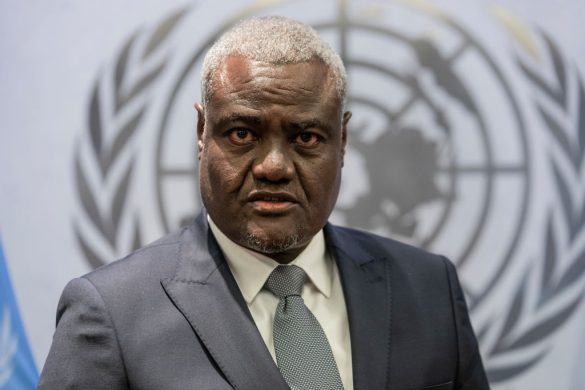Årlig FN-rapport tager for første gang tyren ved hornene og fortæller, hvilke væbnede styrker, militser og andre, der begår flest overgreb mod kvinder og børn verden over.
NEW YORK, 23 February 2012: The annual United Nations report documenting conflict-related sexual violence around the world Thursday for the first time names some of the military forces, militia and other armed groups that are suspected of being among the worst offenders.
The groups listed in the report include the Lord’s Resistance Army (LRA) in the Central African Republic (CAR) and in South Sudan, armed militia groups and former armed forces in Ivory Coast, and the armed forces of the DR Congo (former Zaire).
The report provides examples of how sexual violence has threatened security and impeded (modvirkede) peacebuilding in post-conflict situations, such as in Chad, CAR, Nepal, Sri Lanka, Timor-Leste, Liberia, Sierra Leone, and Bosnia and Herzegovina, and how it has been used in the context of elections, political strife and civil unrest in Egypt, Guinea, Kenya and Syria, among others.
“Conflict-related sexual violence is not specific to one country or continent: it is a global risk. The terror of unarmed women facing armed men is age-old and universal,” said the Secretary-General’s Special Representative Margot Wallström, who presented the report to the Security Council in New York.
The report stresses that over the past year there have been several new and ongoing armed conflicts where sexual violence was widespread and, in some instances, may have been systematically targeted at civilians by armed forces and armed groups with the intent of punishing, and humiliating the population.
“Wars have entered the marketplaces where women trade; they follow children en route to school; and haunt the prison cells where political activists are detained,” Ms. Wallström told the Council, adding that when rape is part of political coercion it threatens collective peace and security with long-term consequences.
The report highlights the need to put measures and frameworks in place not just to address sexual violence in conflict but to prevent it, and outlines various UN initiatives that seek to identify early warning signs of sexual violence, and to ensure that peace agreements address this issue so it is not repeated in the future.
“The terms of the debate have shifted from reacting to sexual violence like any other tragedy, to preventing it like any other threat. Instead of talking about women’s wartime suffering – year after year after year – protection mechanisms have been established. Instead of seeing the same few women – in meeting after meeting – we are building a broad coalition,” Ms. Wallström said.
Ms. Wallström also emphasized the need to protect not only women and children but also men from sexual violence. She expressed particular concern about the reported sexual abuse of men in detention in Syria as a method of extracting intelligence.
The report, which covers the period from December 2010 to November 2011, also underscores the importance of ensuring that sexual violence does not continue in post-conflict situations, as there are many cases when this type of violence will prevail long after wars have ended.
“As a process of intimidation, targeted rape is often a precursor to conflict, as well as the last weapon to be relinquished in its wake. It is important not to exclude from consideration sexual violence that continues after the guns fall silent,” she said.
Kilde: FNs Nyhedstjeneste














